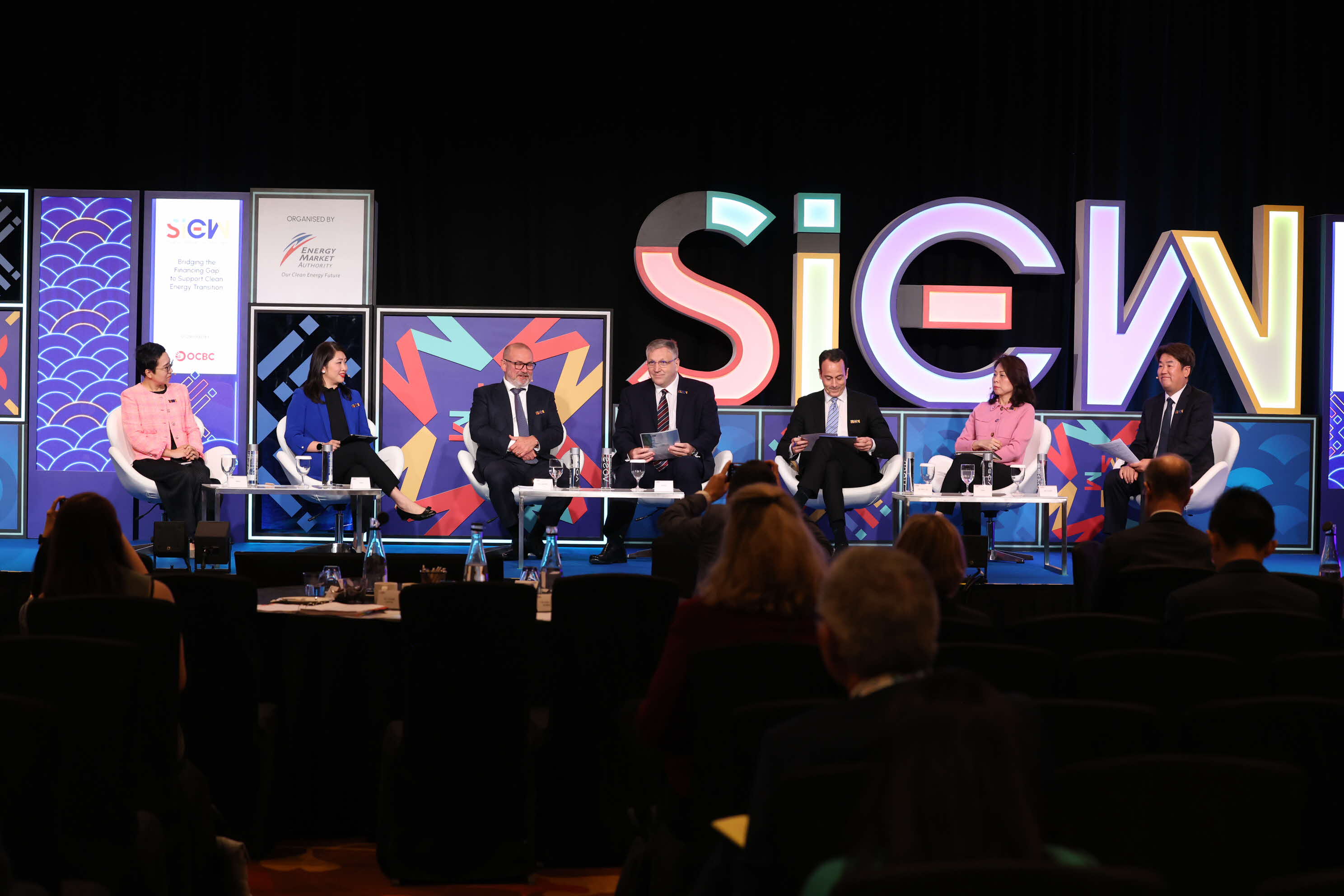The Singapore-International Energy Agency (IEA) Ministerial Forum took a deep dive on "Bridging the Financing Gap to Support Clean Energy Transition". Key decision-makers from government, financial institutions, and international organisations tackled the challenges of funding Asia's energy transition.

Insights were shared across North America, Europe, and Southeast Asia, highlighting the need for innovative financing solutions, infrastructure development, and regional cooperation.
The discussion, moderated by Timothy Histed, Head, Thailand, Multilateral Investment Guarantee Agency, underscored Asia's unique position in the global energy transition. It also highlighted the region's critical need for harmonised standards to attract investment.
Regional perspectives and unique transition paths
Asia and Europe have distinct energy transition strategies. "Energy security is one of the top priorities for the European Union," noted H.E. Csaba Lantos, Minister of Energy, Hungary, as Europe focuses on reducing reliance on imported natural gas.
In contrast, Asia faces different challenges. "Asia's energy transition journey will be vastly different from that of any other region," said Gillian Tan, Assistant Managing Director (Development & International) and Chief Sustainability Officer, Monetary Authority of Singapore (MAS). She shared that "Asia faces a catch-22: it has significant ground to cover in its energy transition while meeting massive energy needs. The only way forward is to leapfrog traditional fossil fuel dependency". These regional differences underscore the need for tailored solutions to drive Asia's transition.
Dr Woongtae Chung, Head of the International Affairs Center, Korea Energy Economics Institute, elaborated on South Korea's unique challenges in this context. He pointed out that with limited land, high population density, and challenging terrain, large-scale solar and wind projects are difficult to implement. This further complicates the country's energy transition strategy.
Financing mechanisms and market developments
Yuki Yasui, Managing Director, Asia Pacific Network, Glasgow Financial Alliance for Net Zero (GFANZ), emphasised the need to reshape the financial system to fund energy transition effectively. She identified these critical gaps in the current system: data, action and ambition, and investment.
The path forward, she said, lies in "innovative solutions like blended finance and stronger collaboration between public and private sectors, as well as policymakers, to mobilise capital for the energy transition in Asia". This will require coordinated action across the financial sector she added.
Financial institutions are already demonstrating their commitment to this transition. Elaine Lam, Head of Global Corporate Banking, OCBC, highlighted her company's role in financing projects, ranging from traditional gas-fired power plants and waste-to-energy to rooftop solar and battery storage.
Infrastructure and technology investment
Investments in infrastructure and technology are critical to the energy transition. "We need to double down on investments in grid infrastructure and battery storage to meet firming requirements. Grid expansion remains a significant challenge for the region," stated Ms Tan.
Ms Lam noted OCBC's focus on technologies like carbon capture, large-scale battery storage, and floating renewables—key to Southeast Asia's energy transition. These infrastructure investments require substantial capital, and developing financial mechanisms to address these challenges will be crucial for the region's energy evolution.
Public-private collaboration and market harmonisation
Ms Tan reiterated that effective collaboration between public and private sectors is essential for the energy transition, especially in establishing coherent regional frameworks and standards. If we succeed, it will attract significant commercial investment.
H.E. Frank Des Rosiers, Assistant Deputy Minister, Natural Resources- Canada, shared that his country's diversified energy export strategy catering to different needs has worked most successfully. In the context of Asia, he shared that "hydrogen is one we have considerable activity in the East and West coast gearing towards the Asian market".
The deep dive session illustrated the complex dynamics of financing Asia's clean energy transition. While the region's journey differs significantly from other regions, success will depend on innovative financing, robust infrastructure investment, and stronger public-private collaboration.
Harmonising standards across the region will be critical for unlocking the potential of Asia's energy transition towards a connected and sustainable energy world.
Stay tuned for live updates! Follow @SIEW_sg on Telegram and Twitter for the latest as we dive into the conversations shaping Day 2.